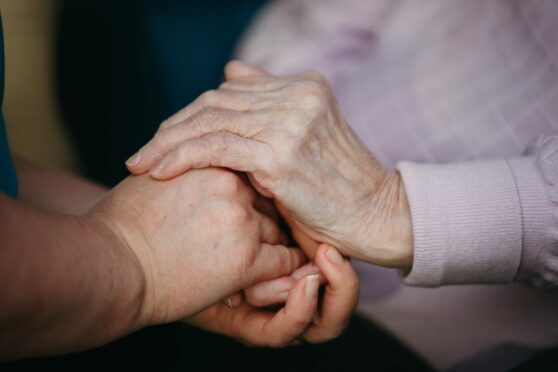The work of a number of unpaid carers living in Fife has been highlighted to MPs in the House of Commons.
Wendy Chamberlain, MP for North East Fife, is looking to change the law to give unpaid leave to unpaid carers to help them balance their work life and their caring responsibilities.
She led a debate in Westminster where she highlighted the dedicated work of some of her own constituents who are unpaid carers.
The Lib Dem MP dubbed them the “backbone” of our country and said the UK would collapse without them.
Country would collapse without carers
Previously Ms Chamberlain told The Stooshie politics podcast many unpaid carers are having to give up work because they are struggling to balance their job and their caring responsibilities.
Should her proposals be passed into law, all unpaid carers would be entitled to an extra five days of unpaid leave a year.
She hopes this new legislation would benefit as many as 2.4 million people across the UK.
In bringing forward her Bill to the House of Commons, she said: “Caring can be small, personal things done behind closed doors.
“We think of it as something private that we do for the people we love without question.
“But this country would collapse without unpaid carers and the importance of them cannot be underestimated.”
She added the value of the work unpaid carers in the UK did in 2016 was almost £60 billion.
Work of Fife carers highlighted
In making the case for her proposals to become law, Ms Chamberlain highlighted the work of a number of unpaid carers in her own constituency of North East Fife.
She said: “One of my constituents Karen cares for her 91-year-old mother.
“She drives from Cupar to Annan, which is a long way.
“She makes the 125 mile drive because she cares and she is able to get support from her employer to make things work.
“Amanda works full time but cares for her mum and dad.
“Her dad has chronic COPD and her mum is showing clear signs of dementia, a path many of us recognise.
“She sets up their appointments, speaks to the carers and pops in as often as she can to do the shopping and to be there after the nurses leave to manage her mum’s confusion and distress.
“So far her employer has been supportive and she has taken last minute holidays and the odd day off.
Her mum won’t get better – will her employer stay supportive? What happens if she gets a new manager?
– Wendy Chamberlain MP
“But her mum won’t get better – will her employer stay supportive? What happens if she gets a new manager?”
She also met with a group from CRAP Carers in St Andrews, including those looking after children with severe mental health challenges, terminally ill parents and partners with dementia.
Ms Chamberlain said: “I came away from meeting that group feeling a lot of love but also anger because they felt too much of their time was being spent on the admin of care rather than actually giving care – and that includes negotiating time off with their employers.”
Carers often feel like a failure
She also said one woman called Amy said many carers felt like they were a failure if they left their job to look after a loved one.
Ms Chamberlain said: “Amy is the chair of Fife MS and her husband cares for her full time.
“This is not unusual – the MS Society says 34% of carers give up work when caring for someone with MS.
“Amy is a force of nature.
“She was a behavioural scientist working with young offenders and she was so successful the local police started to hear positive things about a new gang called ‘Amy’s Lads’.
“Amy told me carers often feel like a failure for not being able to balance home and professional life, and for not being the perfect partner and getting everything right.”
Proposals take one step forward
Ms Chamberlain has already received cross-party support for her Bill to introduce unpaid leave for unpaid carers.
Dean Wallace MP, parliamentary undersecretary for business, energy and industrial strategy, said Ms Chamberlain’s arguments were “incredible” and agreed unpaid carers are “invaluable”.
Ms Chamberlain’s Bill passed its second reading unanimously and now goes through to the next stage at the House of Commons.


